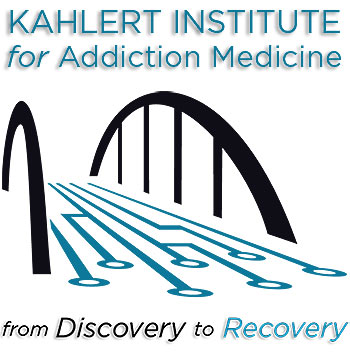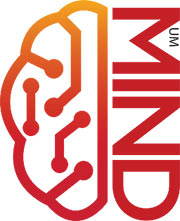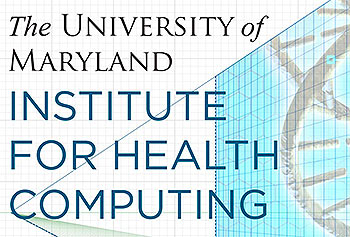Dean Gladwin is committed to addressing the many generational challenges in healthcare today. These challenges include brain science, tackling the addiction epidemic, mental health, and problems related to aging, such as neurodegeneration and dementia. Other generational challenges are obesity, health equity, climate medicine and emerging pathogens. There is also challenge and opportunity surrounding computation, big data, information technology and artificial intelligence, which are all changing the practice of medicine overnight.
In his first year as Dean, Dr. Gladwin launched three institutes to begin addressing these challenges.
- Kahlert Institute for Addiction Medicine
- Institute for Neuroscience Discovery (UM-MIND)
- Institute for Health Computing (UM-IHC)
Kahlert Institute for Addiction Medicine
 Maryland alone has experienced a more than doubling in its rate of drug overdose deaths from 2015 to 2020 - from 21 deaths to 44 deaths per 100,000 people. This increase is one of the highest in the nation with an overdose death rate that is 50 percent higher than the national average. In Baltimore City, 964 deaths were attributed to opioid overdose in 2020, nearly triple the number of deaths from homicide.
Maryland alone has experienced a more than doubling in its rate of drug overdose deaths from 2015 to 2020 - from 21 deaths to 44 deaths per 100,000 people. This increase is one of the highest in the nation with an overdose death rate that is 50 percent higher than the national average. In Baltimore City, 964 deaths were attributed to opioid overdose in 2020, nearly triple the number of deaths from homicide.
With a commitment of $30 million in funding, the new Kahlert Institute will bring together leading addiction experts in a shared research space to collaborate and create the synergy necessary for systemic change. UMSOM faculty will serve as an integral part of this Institute. They will include neuroscientists, studying the brain mechanisms underlying substance use and its lifelong consequences, and clinical researchers investigating potential interventions in patient trials. Institute members also will include substance use disorder specialists who understand the daily realities of caring for patients with complex disorders often involving psychiatric illness, trauma, and socioeconomic stressors.
Institute for Neuroscience Discovery (UM-MIND)
 The University of Maryland-Medicine Institute for Neuroscience Discovery (UM-MIND) will accelerate translational research of the brain by facilitating interaction between basic and clinical scientists and enhancing collaborative research across the UMSOM and University of Maryland, Baltimore (UMB) campus. The institute will recruit new talent to campus and leverage the more than 120 leading neuroscientists at UMSOM under one umbrella and elevate the prominence of UMSOM’s basic and clinical science research portfolio. UMSOM has more than $65 million in research funding for neuroscience research projects across several schools, centers, and departments.
The University of Maryland-Medicine Institute for Neuroscience Discovery (UM-MIND) will accelerate translational research of the brain by facilitating interaction between basic and clinical scientists and enhancing collaborative research across the UMSOM and University of Maryland, Baltimore (UMB) campus. The institute will recruit new talent to campus and leverage the more than 120 leading neuroscientists at UMSOM under one umbrella and elevate the prominence of UMSOM’s basic and clinical science research portfolio. UMSOM has more than $65 million in research funding for neuroscience research projects across several schools, centers, and departments.
The Institute will leverage recent advances in artificial intelligence (AI) and computing to create a premier learning healthcare system that evaluates both de-identified and secure digitized medical health data to diagnose, prevent and treat diseases in patients across the state of Maryland. The new Institute will incorporate technologies, including the use of machine-learning algorithms, to study emerging diseases and help establish precision patient care to halt disease progression. “The integration of ‘big data’ with artificial intelligence and immersive technologies in health care is fundamentally changing the way we will treat patients – enabling us to vastly improve and personalize care for each individual,” said Dean Mark T. Gladwin. “Our vision is for this to become the East Coast Silicon Valley for health computing.
 Institute for Health Computing (UM-IHC)
Institute for Health Computing (UM-IHC)
The University of Maryland-Institute for Health Computing (UM-IHC) will leverage recent advances in artificial intelligence (AI) and computing to create a premier learning healthcare system that evaluates both de-identified and secure digitized medical health data to diagnose, prevent and treat diseases in patients across the state of Maryland.
Announced by the University of Maryland Strategic Partnership: MPowering the State, the Institute is a partnership of the University of Maryland, Baltimore (UMB) and the University of Maryland, College Park, in collaboration with the University of Maryland Medical System and Montgomery County, Maryland.
Bradley A. Maron, MD, of the University of Maryland School of Medicine, has been appointed Institute Co-Director and Director of Scientific Operations.
Harnessing the innovations in health care technologies has become an urgent priority as our nation faces an economic crisis and contends with the ongoing COVID-19 pandemic. Health care leaders have long recognized that health care efficiencies can be greatly improved with the digitization of medical records.

